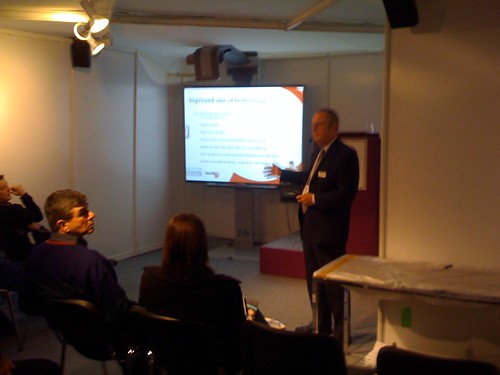29 SimpleTips For Going Green from
SquidooChange to
Fluorescent Bulbs - If every house in the United States changed all of the light bulbs in their house, that would be equivalent to taking one million cars off the streets.
Don't Rinse - Skip rinsing your plates before putting them into the dishwasher. In average you will save 15 gallons of water per load. Plus, you will save time.
Hang Outside to Dry - Get a clothes line or rack to dry your clothes. Your clothes will last longer and you will save money.
Turn off computers at night - don't just put them to sleep. You will save an average of 4 cents a day which ads up to $14.60 a year.
Use Both Sides of Paper - if you have a printer with a double sided print option use it. You will save half of the amount of paper you would have normally used.Then when your done bring it to the recycle bin.
Get rid of baths - Don't take baths, take showers. You will in average save about half the amount of water that you would if you were taking a bath.
Don't get bottled water - Instead of bottled water get a
reusable container to carry water. Also you can get a filter to make your home tap taste more like bottled water. It is definitely more cost efficient.
Turn the water off when you brush - Your parents have said this before, now I say it. You will save 4 gallons of water doing this alone.
Shorten your shower - Every minute you cut from your shower is roughly 5 gallons of water. The less time your shower takes, the lower your impact on the environment.
Recycle Glass - If you do not recycle this, it will take a million years to decompose.
Don't Pre-Heat the Oven - unless needed, just turn the oven on after you put the dish in it. Also, to see if it's finished just look through the glass instead of opening it.
Use Warm or Cold Setting on Washer - instead of the hot cycle use the warm or cold setting. This will save a lot of energy a year.
Turn Down your Thermostat - Every degree lower in the winter or higher in the summer you put it is a 10% decrease on your energy bill.
Turn off your lights - An easy one. Turn off your lights when you are not using them. The benefits are obvious.
Get rid of junk mail - There are many services that can help you get rid of junk mail. That will lead to a lot less trees being cut down to take up room in your mailbox.
Use Matches instead of lighters - Lighters are usually considered disposable so they will most likely end up in land fills. You can use the cardboard matches which are much more eco-friendly because they are made of recycled material.
Don't get a paper phone book - Instead of getting a paper phone book. Use a online directory instead.
Give things away - Take things that you are not going to wear or use and give it to a charity or someone who will use it.
Go to a car wash - Going to a car wash is a lot more water efficient then washing your car at home.
Stop paper bank statements - Why waste paper getting your bank statement mailed to you when you can just check it out online.
Buy
Rechargeable Batteries - Even though it will take a good investment to buy these you will find yourself gaining it back in no time.
Pay your Bills Online - If every house in the US did this then we would save 18 million trees every year.
Get a reusable bag - You can't recycle plastic bags, instead get yourself a reusable bag so that you won't have to worry about carrying your necessities.
Do Errands in Bulk - Make a list of the things you have to do, and see if you can fit a couple of those things together in one ride.
Inflate your Tires - If your tires are properly inflated at all times your car will run more miles on less gas.
Wrap Presents Creatively - Without going out to get wrapping paper you can use newspaper, an old map, or anything else. It would look a whole lot more creative.
Plant a Tree - It's good for the air, can keep you cool, and can increase your property value.
Buy Local Produce - Consider how much energy it takes for produce from china or any other country to come here. If you have the option to buy local, do it.
Walk or Ride Your Bike When you can - If you have to go somewhere close consider riding your bike or walking there instead of your car. It's better on the environment and healthier.





